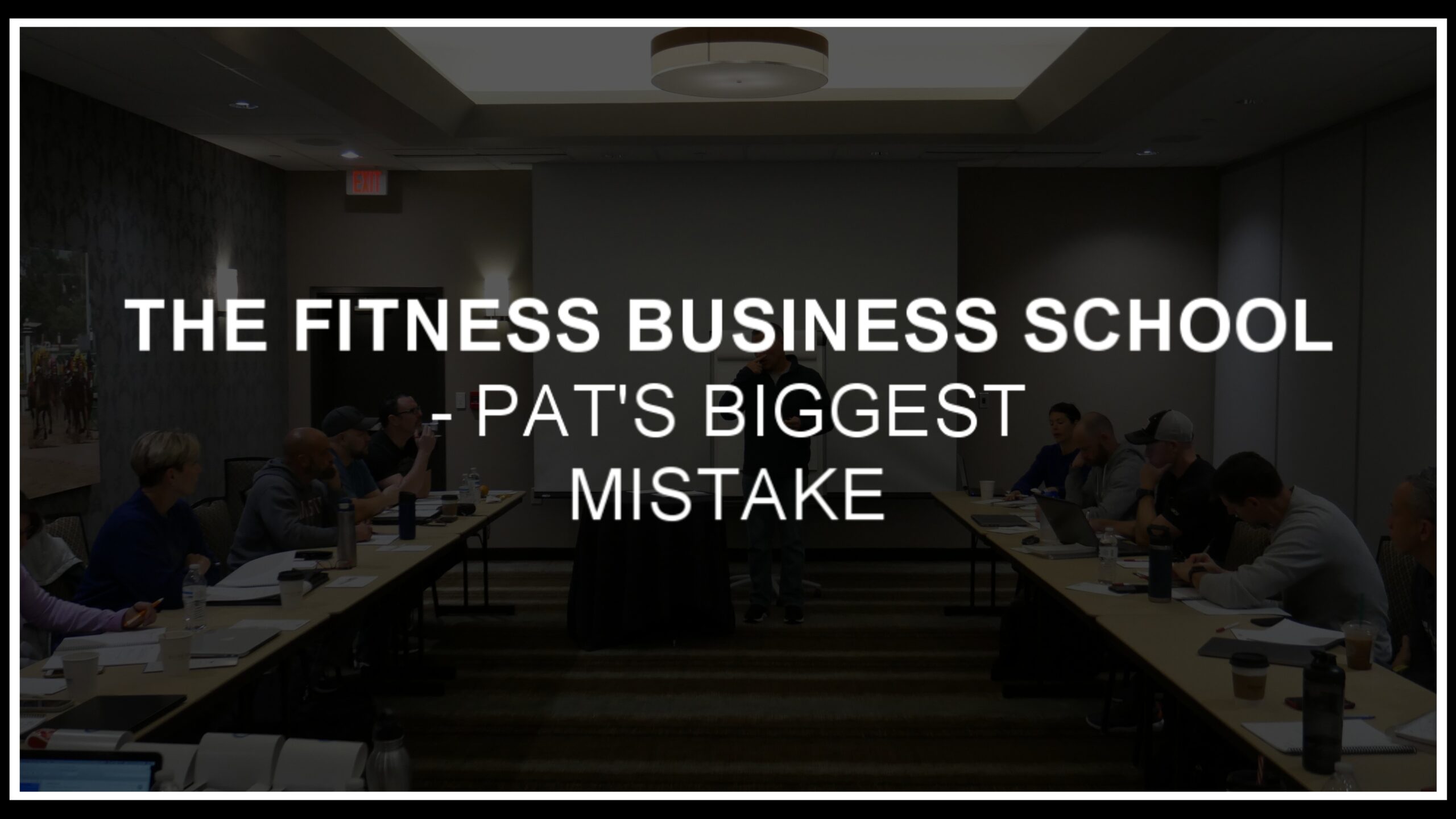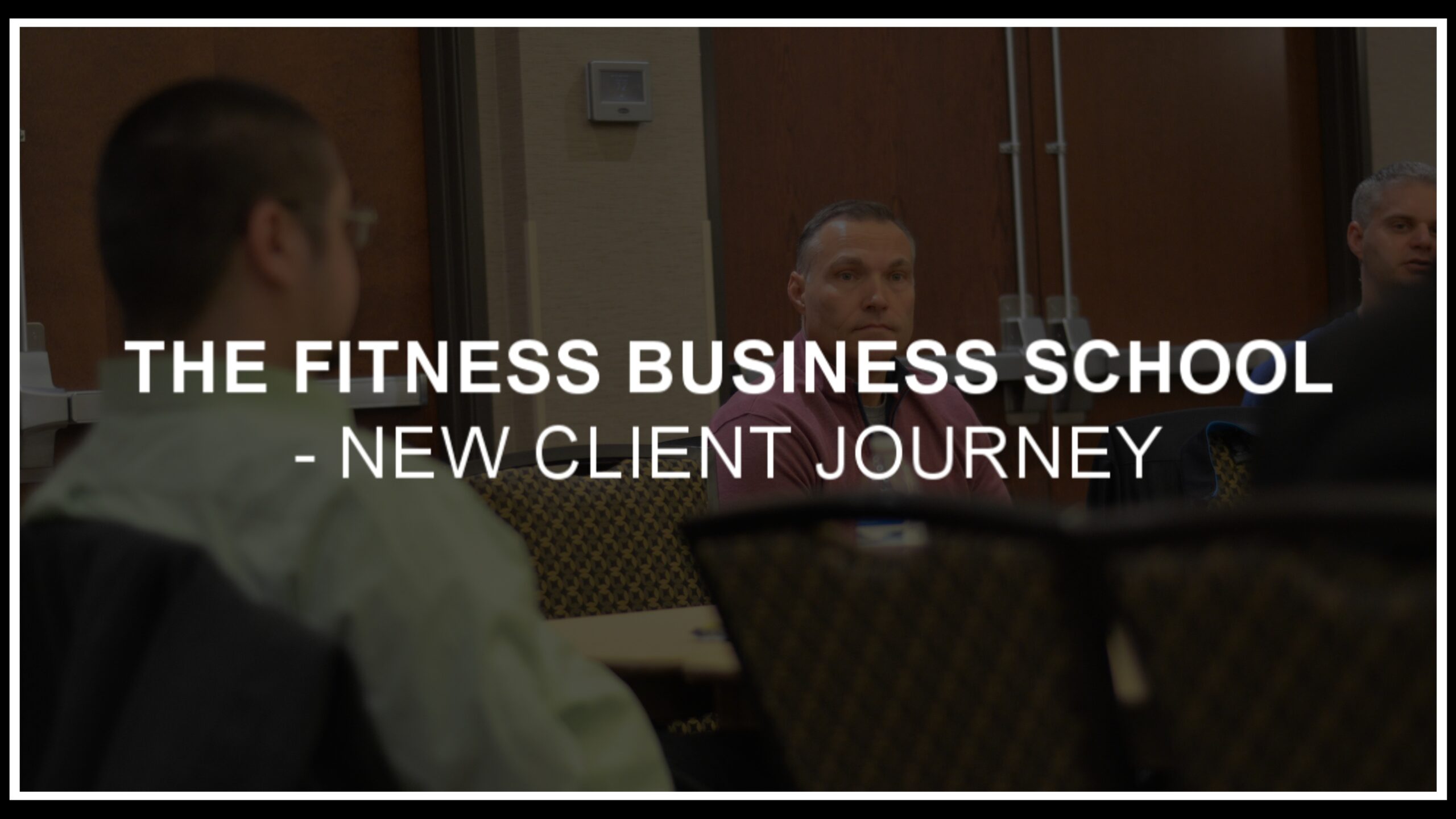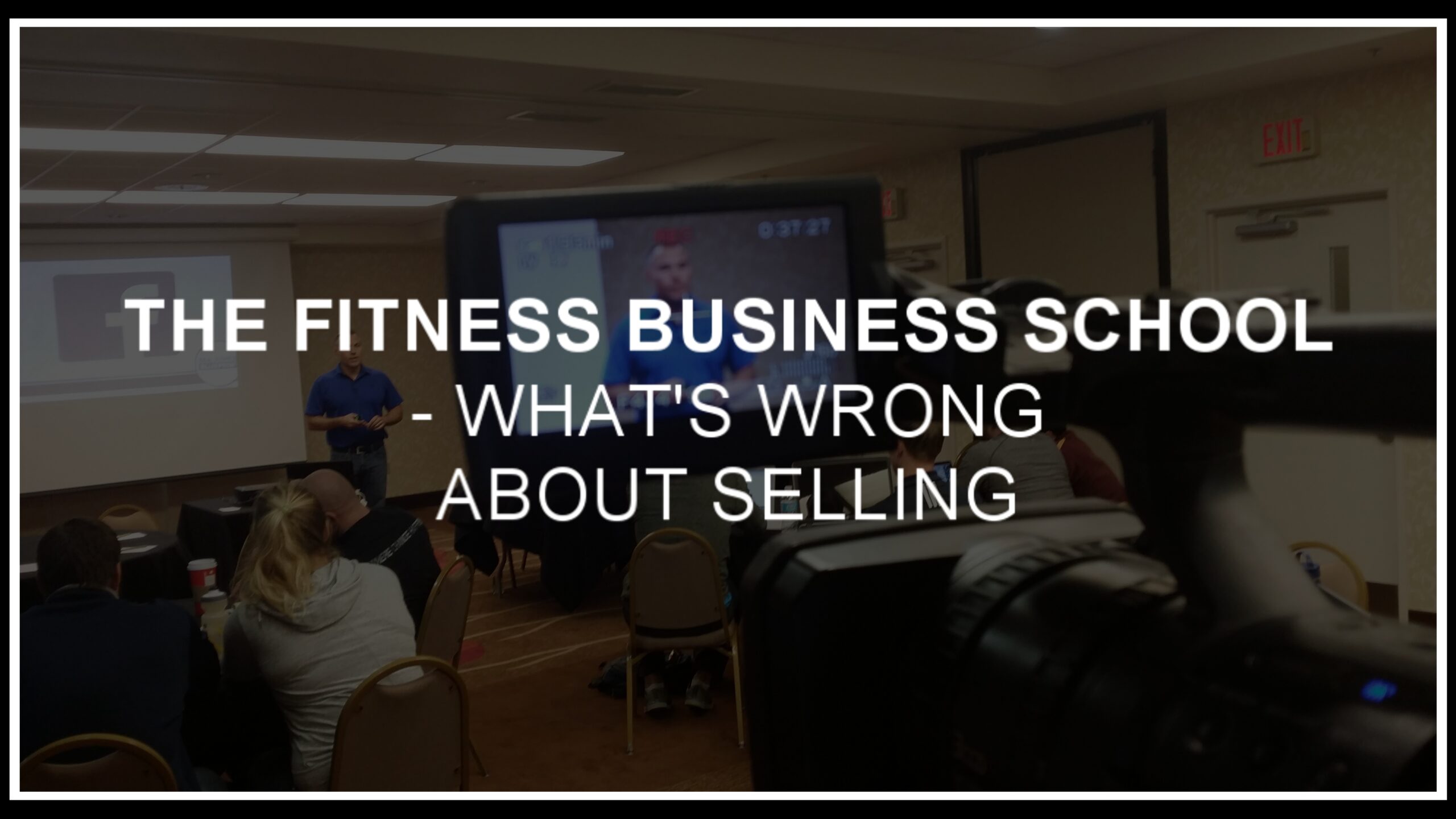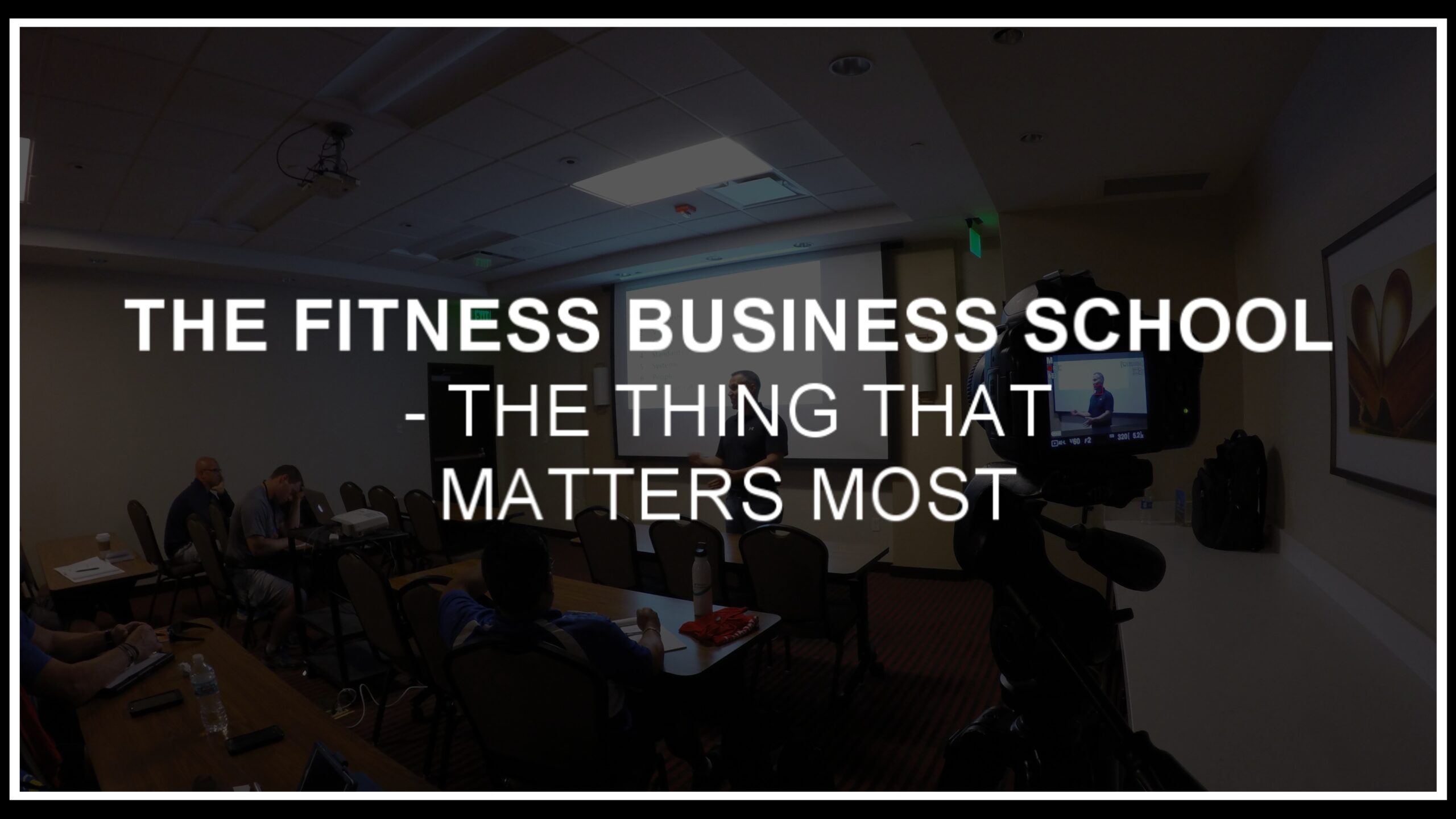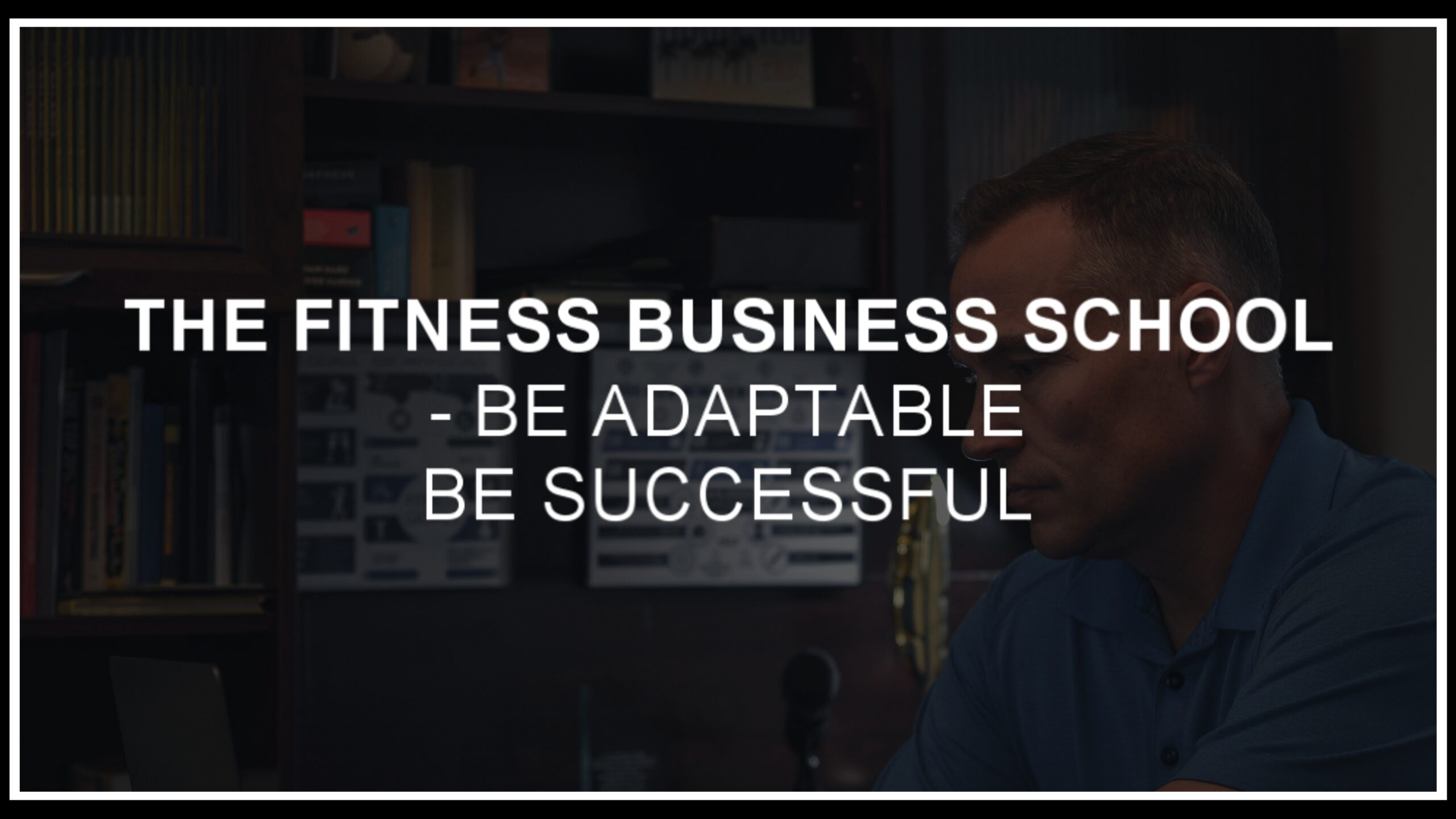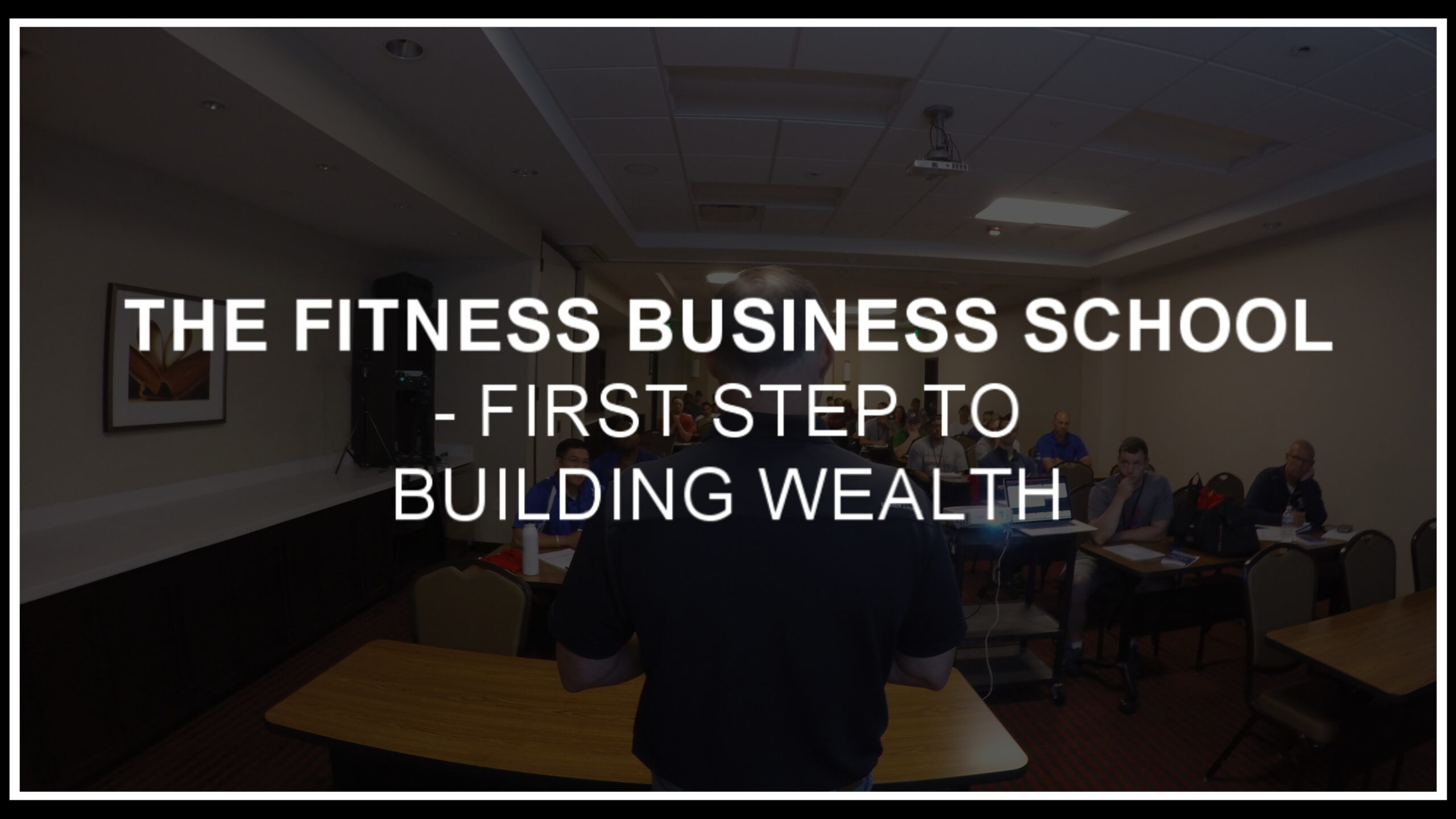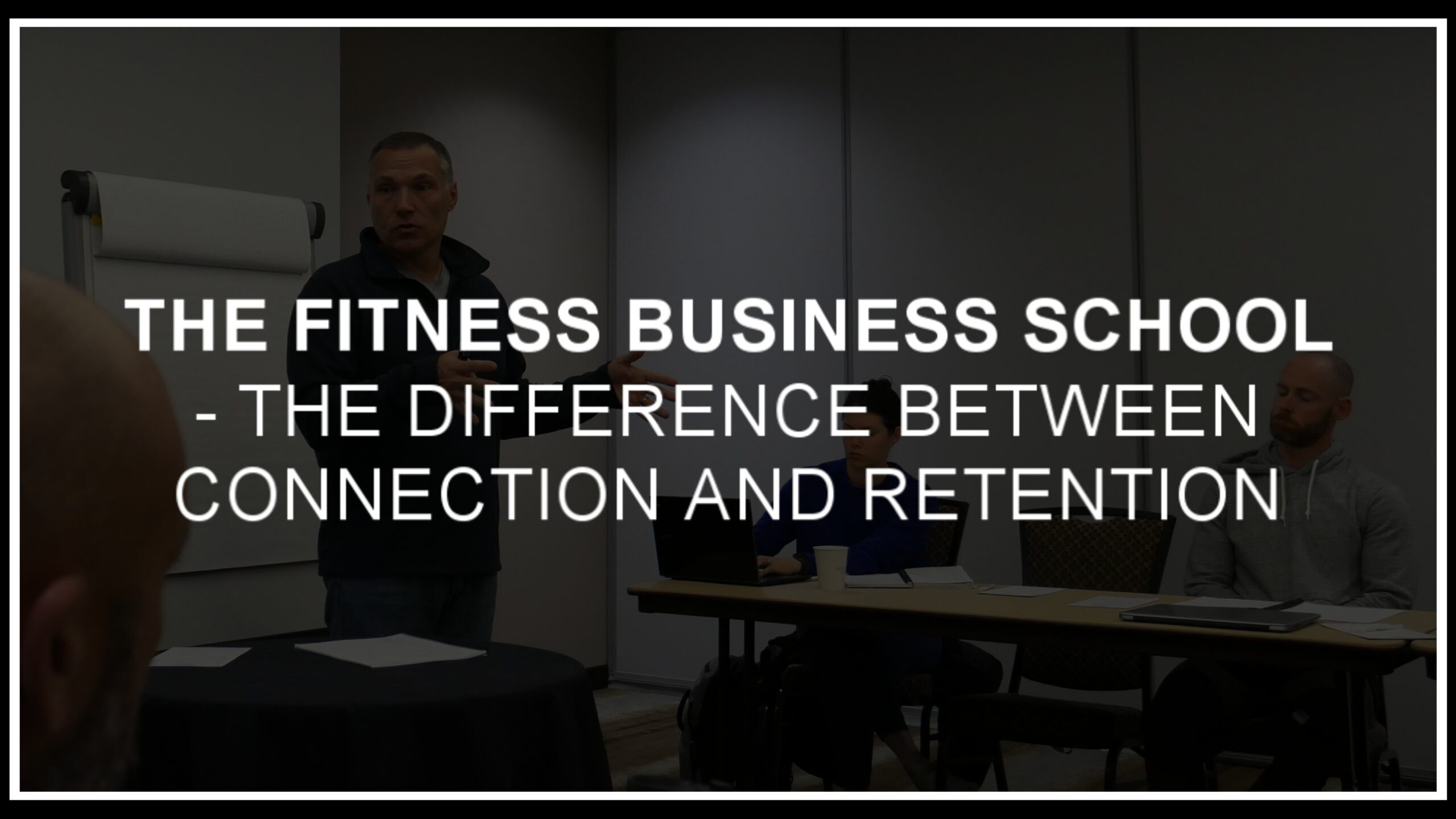Show Notes
- Teach your clients how to treat you
- You should not be on-call 24 hours a day
- Set boundaries and make your own schedule
- If you’re good at what you do, clients will adapt
- People want to go to the best
- Are you 24 hours McDonald’s or a high-end steakhouse?
- Its easier to do when your pipeline is full
- Do things at your convenience and build that into your culture
Full Transcript
Hey, Pat Rigsby here and in today’s episode I wanna talk with you about a shift you can make to have a better business. Let’s get started.
Welcome to the Fitness Business School podcast, the show for fitness business owners who want to grow their income, increase their impact and improve their lifestyle. Be sure to listen to the end of this episode because we have a brand new special offer exclusive for listeners. So stay tuned.
I’m gonna start off with a, a little story, and heck, if you’ve ever been at a mastermind meeting with me or whatever else, you may have heard me tell this story before. I had a gentleman who was in a coaching group a number of years ago, and he, Facebook messaged me on a Saturday. I was watching my
younger son, Alex, play basketball. That Saturday. I noticed it pop up cause at that point I had Facebook notifications still on my phone, and, but it’s Saturday, I’m watching my kid play basketball in the middle of the winter, and I responded to him on Monday.
Well, fast forward two or three weeks later, he came in town for a private consulting session and I picked him up at the airport and he was like, he was kind of seething. It was a little bit awkward. He just, there was tension. Like he, he wasn’t friendly. It’s like he had been building up this frustration. And then,
so finally I asked him, I said, so what’s going on here? What’s eating at you here? And he just was, he just vented because I didn’t respond to him when he sent that message and I put him off and whatever else. And at that point he was in a group and they were probably paying $750 a month or
something like that. So, not an insignificant amount of money, but in my world, that certainly wouldn’t be what I would call on call investment.
That’s, and I was very clear about that. I said, man, I mean, to be frank, you could pay 10 times what you’re paying. And that doesn’t, I’m not going to be on call to respond at any given moment. And then maybe an hour into the conversation he had kind of simmer down a little bit and got a little more relaxed.
And he starts asking me like, how do I get my clients to gimme some breathing room? How do I get them to not be texting me all hours of the day and night? How do I get them to not text me needing something like changing the, an appointment or something on Christmas Day? And I had to laugh because he, he had
had such a blind spot to this. He was behaving the exact same way that the clients were as well. And I demonstrated to him precisely how he could handle that.
You teach those people how to treat you. And, and he took the advice in stride, and I think he went and made a few changes. But it, I mean, it was really interesting to me because it, I thought that was kind of a microcosm of the way a lot of business owners operate. It wasn’t certainly not unique to him. A lot of
business owners in our industry are so fearful of not being super responsive, not texting somebody back all hours of the day and night, not calling somebody. It doesn’t matter what they have on their plate. And I’ve seen plenty of other people do this. I mean, I remember my dad still as I record this, he’s
in his early mid seventies and owns an auto repair business. And at this point, it’s probably more of a hobby to keep him busy and give him a sense of purpose than anything else.
But in his early sixties, I kind of had to strong arm him. I’m like, dude, just take Fridays off. He was like, well, I can’t do that. There’s no way I can do it. I’m like, well, does your doctor work Fridays? He was like, no. I’m like, well then, okay, does your dentist work Fridays? He was like, he takes Mondays
off. And I’m like, so what you’re saying is people do have different schedules than the one that you’re operating with. And he changed and it worked out fine. And I think that sometimes we approach it that way, that that position of desperation, because we think, well, people will leave us if we don’t do this.
And I’m like, man, they don’t, I mean, that’s not the way it works. If you’re good at what you do, people will, will adapt. And I know my wife will like, she, she’s not going to the person that cuts her hair and is the most frequently available.
She’s going to the person she thinks is best right there. I mean, you’re not going to, like, most people don’t say, well, hey, I’m gonna go to the dentist that is always available. I’m gonna go to a dentist that I have a good experience with. And I think that we are almost approaching this from the complete
opposite perspective of the way that we need to. That it, it is not a position of strength to feel like you are on call at all times. That you are always available, that walk-ins are always welcome type of stuff that you see. I mean, you have to decide, are you going to be super cuts or a premium salon, right? Are you going
to be McDonald’s and have the drive through open all hours the day and night it seems like, or White Castle or whatever, or are you gonna be, are you gonna inch your way towards Ruth Christ where you’re in demand enough that their reservations are required?
And so from my perspective, you are, you are in control of this. And part of the reason that we approach things from a real position of desperation, I believe, is that we’ve not taken responsibility for keeping the pipeline full. We’re not going out and marketing, we’re not seeking out new business regularly. So it’s, we
hang on with a death grip to anybody who’s there, and we’re fearful of them leaving because we’ve not done what it takes to replace them should they leave. And that prevents us from raising our rates, that prevents us from doing anything that might disrupt their experience at all. We do. We’re afraid
to change time slots, even if some of them are relatively sparse. I the answer to this is getting better on the front end, filling the pipeline more, creating more interest in what you do, and then crafting a business that people really want to be a part of because it’s the best business, not because they feel like they have
you over a barrel.
And you’ll do anything at all times on call for them. And if you shift this, if you take a different approach and you’re saying, okay, every day I am generating new leads every day I am filling the pipeline every day I am generating more business, then no one person can ever feel like they’re holding you hostage as a
client. You just say, Hey, you know what? This is how things work and I have to, maybe we need to move on. Maybe there’s a better fit for you somewhere else. But I assure you that for most of the other service providers in your client’s lives, if they’re texting them on Christmas day, anything other than
Merry Christmas, those people aren’t, they’re ignoring it. And if you are expecting on demand stuff, I am sure that if my wife Holly texted the person who cuts her hair right now and expected immediate service, that lady would probably say, sorry, I’m booked it.
I mean, it’s kind of like we work with what is available. And we see that all the time with people who’ve become very proficient at their craft is they’re not on call, they’re not available on demand because there are other people who want their services too. So you usually, at least in my world, you’re
listening this because you want to build your ideal business. You want to have a business that you enjoy owning. You want to have a business that doesn’t feel like it owns you morning, noon, and night. And this mindset shift from becoming reactive and operating from a place of desperation and instead turning
around being proactive and operating from a position of confidence and strength, that’s, I mean, it’s huge. It is a truly, I wouldn’t be exaggerating to say it is a life changing mentality, because the thing that you will always notice as a business owner is this fallacy of inbox zero is, I mean, it’s just silly.
I hear people talk about that, like productivity people or business people, they’ll talk about this. I’m like, man, there’s always somebody, whether it’s in an email inbox or a text or the phone ringing ors omething else, somebody’s always going to have something for you. Somebody’s always gonna want
something of you or of your team. And so the there, there’s always going to be more. So you have to be okay putting guardrails in place and saying, well, that’s fine, but it’s okay if I get to this tomorrow. It’s okay if I get to this at a different time. I am not constantly replying to people simply because it was
convenient for them to message. I mean, that’s the world that a lot of people have operated in. And I feel very fortunate to have grown up in an era where we had phones that were like attached to the wall with a cord where if you didn’t answer it meant you weren’t there.
So you weren’t available. And just because now we carry the phone with us, people think that we’re always available. Well, when somebody reaches out to you, they’re saying, this is convenient for me to do this at this time. They haven’t looked at your calendar, they haven’t looked at your inbox. They don’t
know what’s convenient to you at the moment. They don’t know if you’re at your kid’s basketball game. So you reply when it’s convenient for you, you build your business from the inside out saying, this is the business that I wanna run and I’m gonna do a good enough job in delivering a service and experience a
result to clients that the people who come here love it. And I’m gonna continue to fill the pipeline so that more people want to be a part of this. And if anybody expects something different than what I want to deliver, then we’ll route them to somebody else that may be a better fit.
So a different kind of shift, a different way of thinking towards building your ideal business. And this doesn’t mean you are not customer service friendly, right? This doesn’t mean that you are not somebody people are gonna love dealing with. But I think there are plenty of people who are customer service
friendly and when it’s sold out, it’s sold out, or they’re not on call at all times of day and night, you can build those business, you know that business with all those traits. You can have your own guardrails. You can have a business that supports your life, not just the other way around, but you as the owner, have to
decide to stop playing from a position of desperation, playing from this position of weakness and reactive in this reactive mentality, and start taking control, start taking ownership of the business that you want to have.
Thanks for listening to this episode of The Fitness Business School.
Before you go, I have a quick announcement:
One of of the things that we’ve been doing with our current clients is taking them through this Ideal Business diagnostic and really what it is, this checklist that allows you to pinpoint exactly what your business needs next so you can keep improving, keep growing, and build a business that you love to own, one that pays you well, one that allows you to have the impact you wanna have and one that allows you to have a lifestyle that you truly enjoy.
In this diagnostic, we walk through everything and we do an evaluation and can instantly pinpoint what you need to do next to build that business that you want. I’m going to extend this opportunity to get on with either me or my team and take you through this evaluation and fix your business’s most vital needs fast.
So if we take you through this, you’re gonna be able to make those vital changes that you need to finally have what I call your Ideal Business. If you’d be interested in going through this entirely free, risk-free diagnostic with us and learn what you already have in place, what you’re doing well and where are your greatest opportunities for rapid improvement are just shoot me an email with diagnostic in the subject line to [email protected].
Again, an email to [email protected] with diagnostic in the subject line will get you scheduled and take you through this evaluation to help you build the business you want.


